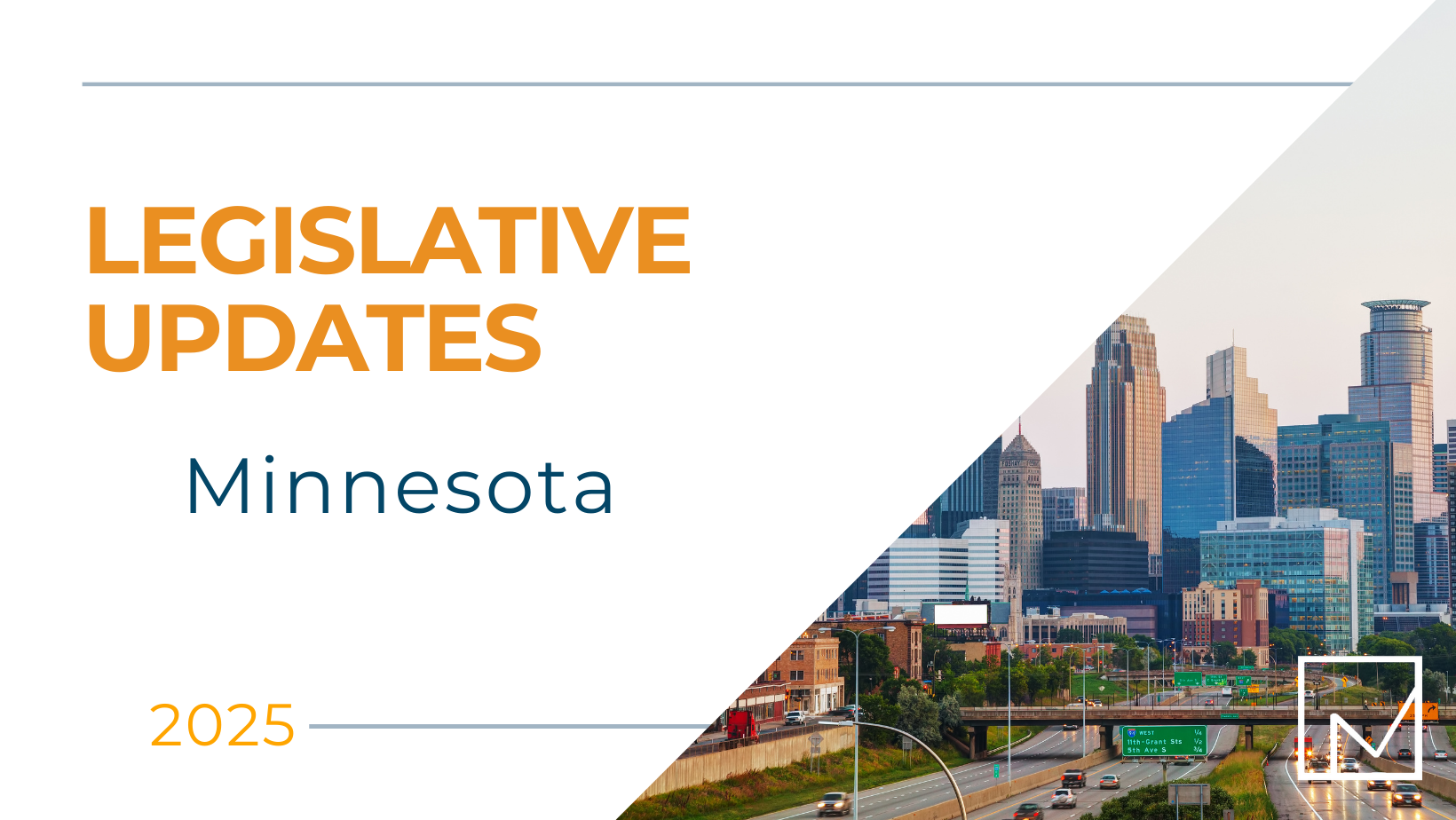Whats New?
The State of Minnesota enacted new requirements for employee break times and minor changes to Earned Sick and Safe Time (ESST) laws during the short 2025 special session. Governor Tim Walz (D) signed bill SF 17 into law on June 14, 2025.
What Does This Mean For You?
Minnesota Fair Labor Standards Act Changes
The following will be in effect on January 1, 2026:
- Rest Breaks: Employers must allow an employee during each four consecutive hours of work to have a rest break of at least 15 minutes or enough time to use the nearest convenient restroom, whichever is longer. The law previously required the employer to allow the employees “adequate time from work.”
- Meal Breaks: Employers must allow each employee working for six or more consecutive hours a meal break of at least 30 minutes. The law previously required a meal break with sufficient time to eat a meal when an employee worked eight consecutive hours. Employers are not required to pay employees during meal breaks.
- Penalties: If an employer does not allow the rest or meal breaks, the employer may be liable for the rest or meal break time that should have been allowed at the employee’s regular rate of pay, plus an additional equal amount as liquidated damages.
Earned Sick and Safe Time (ESST) Changes
The following ESST laws took effect July 1, 2025, except where noted:
- Notice: When the need to use ESST is unforeseeable, an employer may require notice of the need for ESST “as reasonably required by the employer.” The law previously allowed an employer to require notice “as soon as practicable.”
- Documentation: Employers may now require reasonable documentation when an employee uses ESST for more than two consecutive scheduled workdays. This is a reduction from the prior requirement that an employee must use ESST for more than three consecutive scheduled workdays for documentation to be required.
- Replacement Workers: Employers cannot require an employee to find a replacement worker to cover the ESST hours they use. However, a provision was added clarifying that employees are not prohibited from voluntarily seeking or trading shifts with another worker to cover the ESST hours.
- Advancing ESST: Effective January 1, 2026, employers may advance ESST to an employee based on the number of hours the employee is anticipated to work for the remaining portion of the accrual year. However, if the advanced amount is less than the amount the employee would have accrued based on the actual hours worked, the employer must provide the additional ESST to make up the difference.
Paid Family and Medical Leave Entitlement Changes
Additionally, bill SF 17 modifies the state’s family-leave insurance law by capping the maximum tax rate for employers in any given year at 1.1%, lowered from 1.2%. When the program goes into effect in 2026, the rate will be 0.88% for employers.
Have Questions?
Contact Information
To contact the Department of Labor and Industry via telephone or email:
Phone: (651) 284-5075 or (800) 342-5354
Email: dli.laborstandards@state.mn.us
Email: esst.fli@state.mn.us
Stay Informed. Stay Compliant. Grow With Confidence.
Explore our website to find more staffing insights. Madison Resources is the premier payroll funding and back office support partner to the staffing industry. Grow with confidence.


